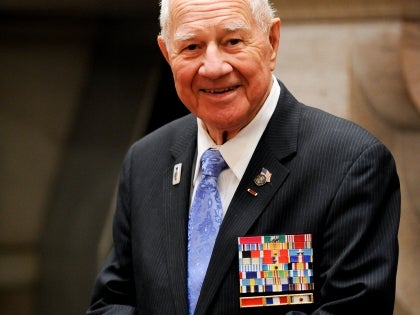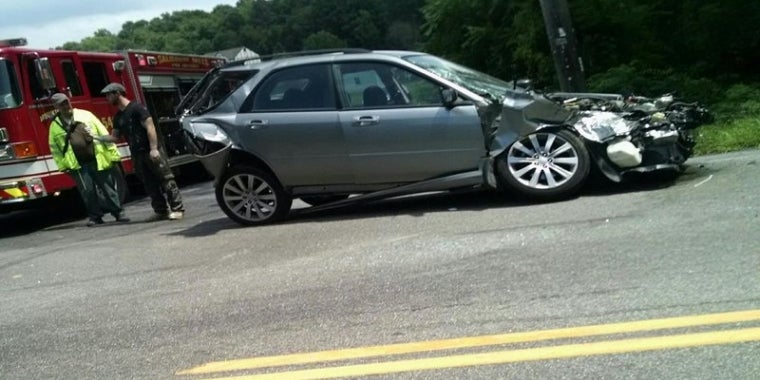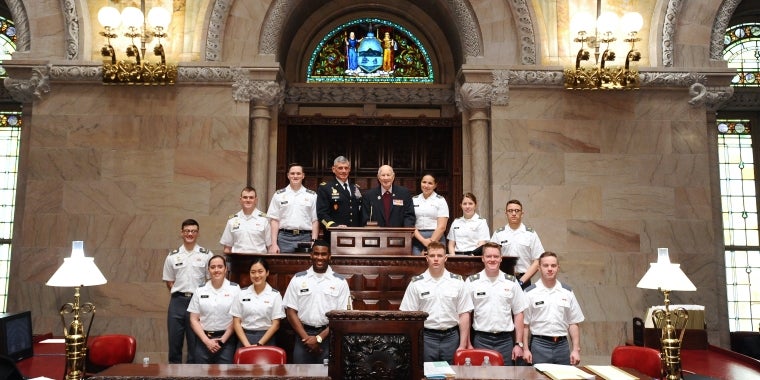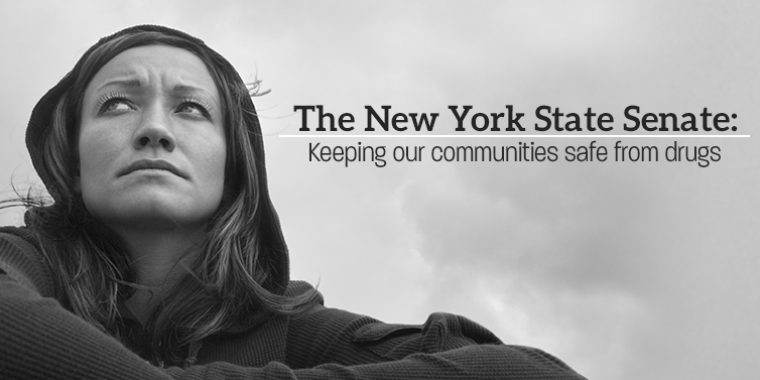
Senator Bill Larkin (R-C, Cornwall-on-Hudson) today announced the Senate Standing Committee on Racing, Gaming, and Wagering will conduct a Committee Meeting on Wednesday, September 12, 2007 at 11:00 AM in Hearing Room A of the Legislative Office Building in Albany, New York to discuss the future of the State Racing Franchise.
Three invited guests: Bennett M. Liebman, Esq., Acting Director of the Government Law Center at Albany Law School; Paul Bowlinger, Executive Vice-President of the Association of Racing Commissioners International and President of RCI Integrity Services; and Charles Vickery, a racing industry consultant who provides statistical research and economic and geodemographic analysis to the racing industry, will discuss recommendations for the optimal business model used as the standard to select the most qualified bidder to manage the State Racing Franchise. In addition, these speakers may comment on Governor Spitzer’s recommendations for the future management of the State Racing Franchise and proposed Memorandum of Understanding to operate this important franchise.
Further, comments may be provided to the Racing Committee on the adequacy of the "Report to the Governor on the Integrity of Those Seeking to Operate the Racetracks at Aqueduct, Belmont Park and Saratoga" that was used as the basis for making recommendations to award the State Racing Franchise.
Senator Bill Larkin, Chairman of the Senate Racing, Gaming and Wagering Committee, stated, "It is critical that an appropriate business model for the management of the State Racing Franchise is established so that the bidder with the most far sighted business plan can be selected to operate the state tracks located at Aqueduct, Belmont Park and Saratoga. The optimal business model should have six standards. It should: 1. Maximize VLT revenue generated to support state education programs. 2. Be designed to support state and local governments so that real property taxes can be reduced. 3. Operate the tracks at a profit. 4. Enhance the racing experience for the benefit of racing fans. 5. Expand the State’s horse breeding and agricultural economy. 6. Enhance additional ancillary economic development activities near vendor racetracks. Further, it is critical that the selected bidder should have unquestioned integrity."


